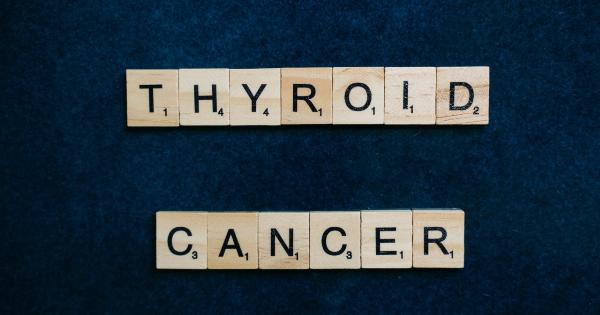Thyroid surgery is usually performed when medication and other treatments do not alleviate the symptoms of thyroid disorders like hyperthyroidism or thyroid cancer.
In this article, we’ll discuss the various situations where thyroid surgery is necessary and what patients can expect from the procedure.
Symptoms of Thyroid Disorders
The thyroid gland plays a crucial role in regulating metabolism. If the thyroid gland malfunctions, it can lead to various health problems that range from weight gain to difficulty sleeping. Symptoms of thyroid disorders include:.
- Fatigue
- Muscle weakness
- Difficulty sleeping
- Irritability
- Mental fog
- Unexplained weight gain or loss
Hyperthyroidism
Hyperthyroidism is a condition where the thyroid gland produces too much thyroid hormone, which increases the metabolic rate. This can lead to symptoms such as rapid heartbeat, weight loss, and sweating.
In some cases, hyperthyroidism can be treated with medication, but if that fails, surgery may be necessary.
Hypothyroidism
Hypothyroidism is a condition where the thyroid gland is not producing enough thyroid hormone. This can lead to symptoms such as fatigue, weight gain, and depression.
Hypothyroidism is usually treated with medication, but if the gland is not functioning correctly, surgery may be necessary.
Thyroid Nodules
Thyroid nodules are lumps that develop within the thyroid gland. In most cases, the nodules are benign and do not require surgery.
However, if the nodule is large or causes significant symptoms, such as difficulty swallowing or breathing, then surgery may be necessary to remove the nodule.
Thyroid Cancer
Thyroid cancer is a rare form of cancer that affects the thyroid gland. Surgery is the primary treatment for thyroid cancer, and patients may need to undergo a thyroidectomy, which involves removing the entire thyroid gland.
If the cancer is detected early, the survival rate is very high.
The Thyroid Surgery Procedure
Thyroid surgery involves removing all or part of the thyroid gland. During the procedure, the surgeon will make a small incision in the neck and remove the gland. The type of surgery performed will depend on the reason for the surgery.
Partial Thyroidectomy
A partial thyroidectomy involves removing part of the thyroid gland. This procedure is usually performed if a patient has thyroid nodules or a small thyroid tumor.
After the procedure, the remaining part of the thyroid gland will continue to function and produce thyroid hormones.
Total Thyroidectomy
A total thyroidectomy involves removing the entire thyroid gland. This procedure is usually performed if a patient has thyroid cancer or severe hyperthyroidism.
After the procedure, patients will need to take thyroid hormone replacement medication for the rest of their lives.
What to Expect During Recovery
After the surgery, patients can expect some discomfort and swelling in the neck area. They may also experience a sore throat and difficulty speaking or swallowing.
Most patients can return to work within a week or two, depending on the extent of the surgery.
Conclusion
Thyroid surgery is necessary in several situations, including hyperthyroidism, hypothyroidism, thyroid nodules, and thyroid cancer. The type of surgery performed will depend on the reason for the surgery.
Patients can expect some discomfort during recovery but can usually return to work within a week or two.




























